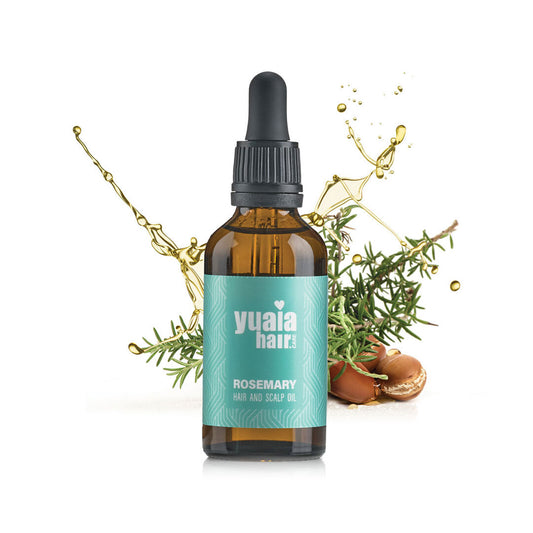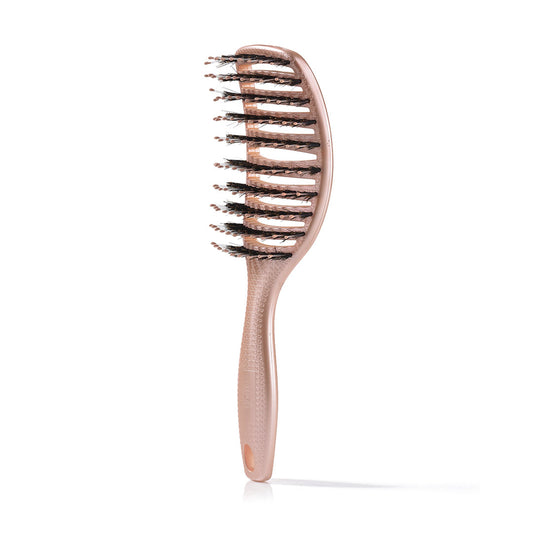
Symptoms to watch for
Recognizing the symptoms of scalp pain is essential for identifying the underlying causes and seeking appropriate treatment. While each condition may present differently, there are common signs to be aware of:
Physical sensations
Scalp pain often manifests through various sensations, including:
- Pain: A direct, sharp, or dull ache when the scalp is touched.
- Burning: A warm, tingling sensation that may feel like the scalp is on fire.
- Tingling or numbness: An unusual sensation that can feel like pins and needles.
Visible changes
In addition to physical sensations, scalp pain may be accompanied by visible changes, such as:
- Flaking: Skin shedding that can resemble dandruff.
- Crusting: The formation of crusts or scabs on the scalp.
- Rashes: Red or inflamed patches that may appear alongside other symptoms.
Hair loss considerations
In some cases, scalp pain might be linked to hair loss. This can occur due to conditions like alopecia, where inflammation or tension on the hair follicles leads to hair thinning or bald patches. If you notice hair loss alongside scalp pain, it's important to consult with a healthcare professional to determine the cause and explore treatment options.
Effective treatment approaches
Finding relief from scalp pain involves addressing the root cause of the discomfort. Here are some effective treatment strategies:
Medical treatments
For skin conditions and infections, medical treatments are often necessary. These may include prescription medications or topical treatments to reduce inflammation and fight infections. Consulting a dermatologist can provide a tailored approach to managing these conditions effectively.
Topical solutions
Topical therapies can play a significant role in alleviating scalp pain. Products designed to soothe irritation and reduce inflammation are particularly beneficial. For those dealing with fungal infections or dandruff, using a specialized shampoo can help manage symptoms and prevent recurrence.
Consider incorporating our rosemary hair oil into your routine. This oil is known for its soothing properties and can be massaged into the scalp to promote relaxation and reduce irritation.
Psychological support
In cases where scalp pain is linked to stress or psychological factors, addressing mental health is crucial. Techniques such as mindfulness, stress management, and counseling can help alleviate symptoms by tackling the underlying psychological triggers.
Self-care practices for a healthy scalp
In addition to medical treatments, self-care practices can support scalp health and prevent pain. Here are some tips:
- Gentle brushing techniques: Use a brush that is kind to your scalp to prevent unnecessary irritation. The Curvy Brush is ideal for detangling without causing pain, thanks to its boar bristles that glide smoothly through hair.
- Protective measures: Protect your scalp from environmental factors like sun exposure by wearing hats or using a UV-protectant spray. This can help prevent sunburn and reduce sensitivity.
How can hair care products affect scalp health?
Choosing the right hair care products is essential for maintaining a healthy scalp, especially if you're experiencing sensitivity or pain. Products that contain harsh chemicals or sulfates can exacerbate irritation, making it important to opt for gentle alternatives. At Yuaia Haircare, we offer rosemary oil, which is known for its soothing properties and can help calm an irritated scalp.
When selecting shampoos and conditioners, look for sulfate-free options that are made to cleanse without stripping away natural oils. These products can help maintain the scalp's natural barrier, reducing the likelihood of irritation and pain. Additionally, avoid products with strong fragrances or alcohols that can dry out the scalp and lead to discomfort.
Frequently asked questions
When should I see a doctor?
If your scalp pain persists despite trying home remedies or if it's accompanied by severe symptoms like significant hair loss, visible sores, or systemic symptoms such as fever, it's important to seek medical advice. A healthcare professional can help determine the underlying cause and recommend appropriate treatments.
Can stress really make my scalp hurt?
Yes, stress can indeed contribute to scalp sensitivity. Stress can lead to muscle tension and changes in the body's inflammatory response, which may manifest as scalp pain. Managing stress through relaxation techniques, exercise, and mindfulness can help alleviate symptoms.
Are natural remedies effective for scalp pain?
Natural remedies can be beneficial for mild scalp pain, particularly when caused by irritation or minor inflammation. Ingredients like aloe vera, tea tree oil, and chamomile are known for their soothing properties and can be used to reduce discomfort. However, it's important to note that while natural remedies can provide relief, they may not address the root cause of more serious conditions.
 2-4 day UK delivery
2-4 day UK delivery
 25.000+ satisfied customers
25.000+ satisfied customers
 Satisfaction Guarantee
Satisfaction Guarantee




























